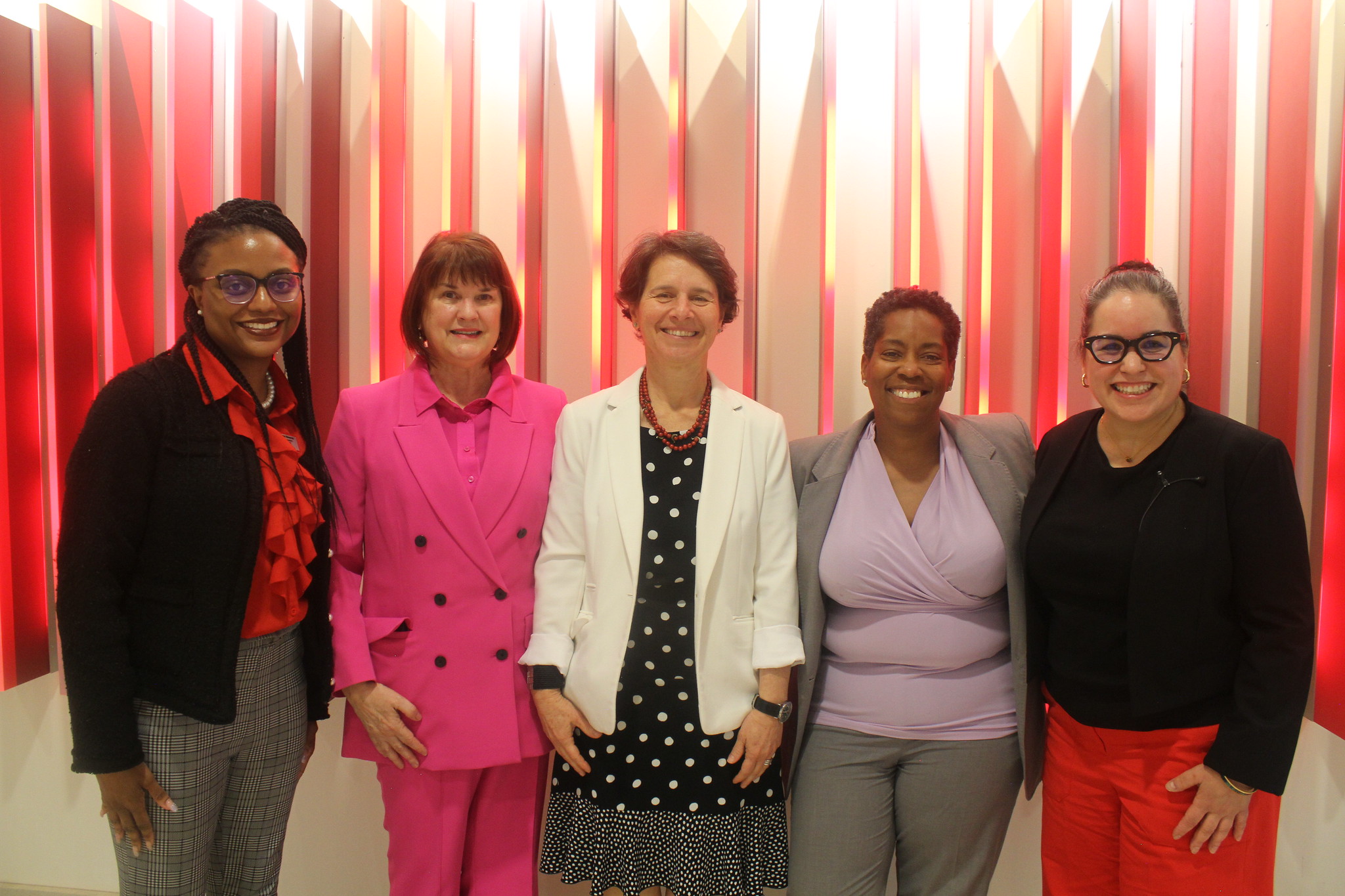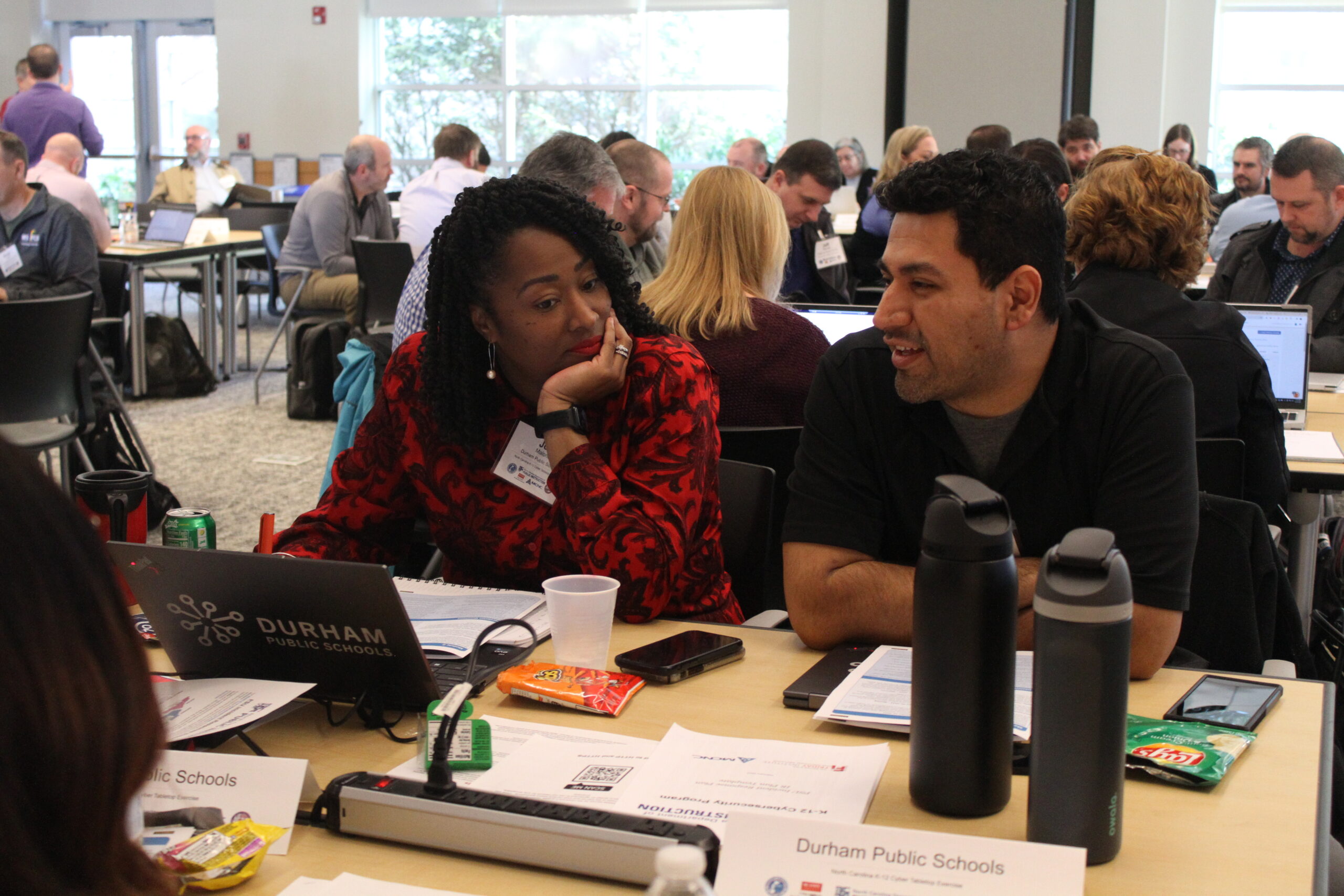Meeting at the Crossroads of Common Core, Digital Learning & State Policy
March 14, 2014 – On March 10-11, North Carolina educators, researchers and legislators came together at the Friday Institute for Educational Innovation for a Convening on K-12 Mathematics Education: Common Core, Digital Learning, and State Policy.

The Convening set the stage for policymakers, practitioners, and Friday Institute researchers to work toward mutual understandings of the challenges each group faces, as well as possibilities for moving policy-relevant education ideas forward at the state level.
“A critical impetus for these convenings is to help researchers and practitioners understand that the policy process is not closed to them,” said Dr. Trip Stallings, Director of Policy Research at the Friday Institute. “If they learn how to frame what they know in ways that resonate with policymakers, their voices can and will be heard.”
State Representative Craig Horn, Research Assistant to the Speaker of the House Greg Lane, and Kendra Cotton-Davenport of the Office of the Treasurer attended, as did several members of the NC General Assembly’s Research division, who were there to help educators better understand how to improve their chances of getting legislative attention for their issues.
Horn emphasized the importance of brevity, explaining that his guidance for those who come to see him is to pick the one item about which, after meeting with him, they will think, “I sure hope he remembers this.”
“North Carolina schools need to have ongoing communication between professional educators at all levels, and Mr. Horn, Mr. Lane, and Ms. Cotton-Davenport were all clear in welcoming that,” said Dr. Alan Maloney, senior research fellow and extension associate professor of mathematics education at NC State University. “The several major currents of change and dilemmas occurring in North Carolina schools require active contributions by all stakeholders, and especially including the teachers, teacher educators, and researchers themselves. This Convening helped get a number of those issues examined jointly by a broad cross-section of educators and policy people.”
Most of the educators at the Convening were not aware of the existence of the General Assembly’s Research division, and this was the first event where they had the opportunity to discuss their concerns directly with legislators and their researchers.
“It was nice to see and talk with people who were not just educators. They might have been former educators but involved in education in other aspects, brought together to talk about the issues that we’re dealing with every day,” said Glenda Wheland, a 7th grade mathematics teacher from Orange County Schools.
Though the Convening’s focus was on mathematics education, other critical recurring themes emerged: the need for sustained, high-quality, and needs-based professional development for all districts and schools; time for teachers and other educators to do more with technology, content, and their own improvement; and the recognition of the critical role of principals and other leaders to support such a system.
Horn, Lane, Cotton-Davenport and the General Assembly researchers joined participants for lunch on the second day of the Convening, during which they discussed the issues that the teachers spent the first day delineating.
“Interacting with Mr. Horn, Mr. Lane, Ms. Cotton-Davenport, and the members of the G.A. Research Division helped demystify communication with policy makers for many participants,” said Maloney.
The Convening highlights the Friday Institute’s commitment to fostering collaboration among educational professionals, researchers, policy-makers, and other community members to advance education through innovation in teaching, learning and leadership. The meeting was supported by the Joseph D. Moore Endowment through Professor Jere Confrey, the Joseph D. Moore Distinguished University Professor in Mathematics Education, and the College of Education at NC State University.
To learn more about the Convening, click here.
or more information, please contact FI Communications.
- Categories:

